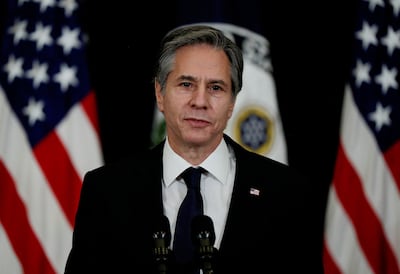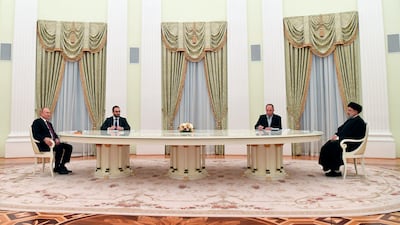The international community continues to be driven into rival blocs, driven by conflict, one-upmanship, and sheer audacity. This has left many states trying to navigate a path outside the growing polarisation. Major powers are attempting to shape an era with little room for non-alignment, but in all cases, countries are taking sides, or not, according to the preservation of national interests, rather than pure ideology.
The pressures from the major powers have a huge impact on the decisions of states outside of the US-led Western alliance. The administration of US President Joe Biden appears confident that its doctrine and policies will shape history and rise to the level of greatness required to lead a new alliance to contain China and Russia. However, it faces entrenched resistance to its efforts for global mobilisation because its position appears too confused, caught between professing a doctrine and improvising without a clear reference framework for its international relations and objectives.
But Russia has made up its mind, choosing a clear vision and national identity, with direct opposition to Nato's projects. China, for its part, continues to build a multilateral economic bloc through the Belt and Road Initiative, while consolidating strategic-military ties with key regional powers such as Iran.
It will be difficult for the US to win this battle of influence, particularly as it tries to lead fragmented and distant blocs around the world without a uniting agenda that caters to disparate national interests. The Biden administration is manoeuvring, for example, between the issues of Iran and Ukraine. For the former, it has tried to break apart the tight alliance between China, Iran, and Russia in order to secure a nuclear deal. But the polarisation over Ukraine has only pushed those countries closer together.
This makes the Biden administration's justifications for its determination to surrender to Iran’s conditions for reviving the nuclear deal even more problematic. Such a deal would rehabilitate and indirectly finance Iran's Islamic Revolutionary Guard Corps, the same entity that enforces Tehran's strategic pact with China, and any possible future pact with Russia, and which projects Iran’s regional expansionist policies against US allies in the Middle East.

Instead of adopting a more deft diplomatic approach, the Biden administration continues to blame former president Donald Trump’s withdrawal from the nuclear deal for having accelerated Tehran’s sprint towards a nuclear bomb. There is not enough evidence to say this with any certainty. We cannot know whether Mr Trump's maximum pressure policy would have eventually forced Iran to change its doctrine and nuclear expansionist policy, because maximum pressure stopped when Mr Trump lost the election. What we do know is that an indirect cash injection from the Biden administration to the IRGC by accepting Iran’s demand to delist it as a terror organisation would empower it further inside the Iranian regime, allowing it to then oversee its pivot from nuclear activities to exporting its model to the Arab world based on entrenching loyalist militias in sovereign countries such as Iraq, Syria, Lebanon and Yemen. US Secretary of State Antony Blinken and Envoy Robert Malley must recognise that the region is not convinced by their claims that their deal with the IRGC is meant to save the Middle East and humanity from an Iranian atom bomb, given those implications.
There is plenty of suspicion among some in the Middle East that the US is seeking to leverage its accommodating approach towards Iran in the negotiations to pressure its regional allies. The US is incensed that these allies have not automatically accepted its orders and priorities on issues like oil production and the need to align with it against Russia and China.
In the view of the Biden administration, a renewed nuclear deal with Iran could help convince the Iranians not to provoke or attack Israel. For this reason, the administration is selling a nuclear deal as something that serves Israeli interests.
But the war in Ukraine has also left doors open for Iran in the Middle East. Knowing that the US is preoccupied trying to balance Ukraine's terms of engagement against Moscow, Iran is freer to provoke more conflict in the Middle East. It could, for instance, heat up the already-escalating conflict between Israel and the Palestinians, by making use of its allies in Gaza and proxies in Syria and Lebanon. Tehran would also be comfortable knowing that its alliance with Russia and China would be affected very little by this in the long term, because it would only help demonstrate America's weakness. At the same time, all of this would have negative ramifications for other countries in the region with whom Russia and China have valued relationships.
The Middle East remains prone to detonation at the hands of outside players, and so clear alignments are never so easy, whatever major powers would like to think. Making alliances work in a way that navigates this tapestry of unprecedented complexity requires diplomacy that operates across more dimensions and with greater nuance.


